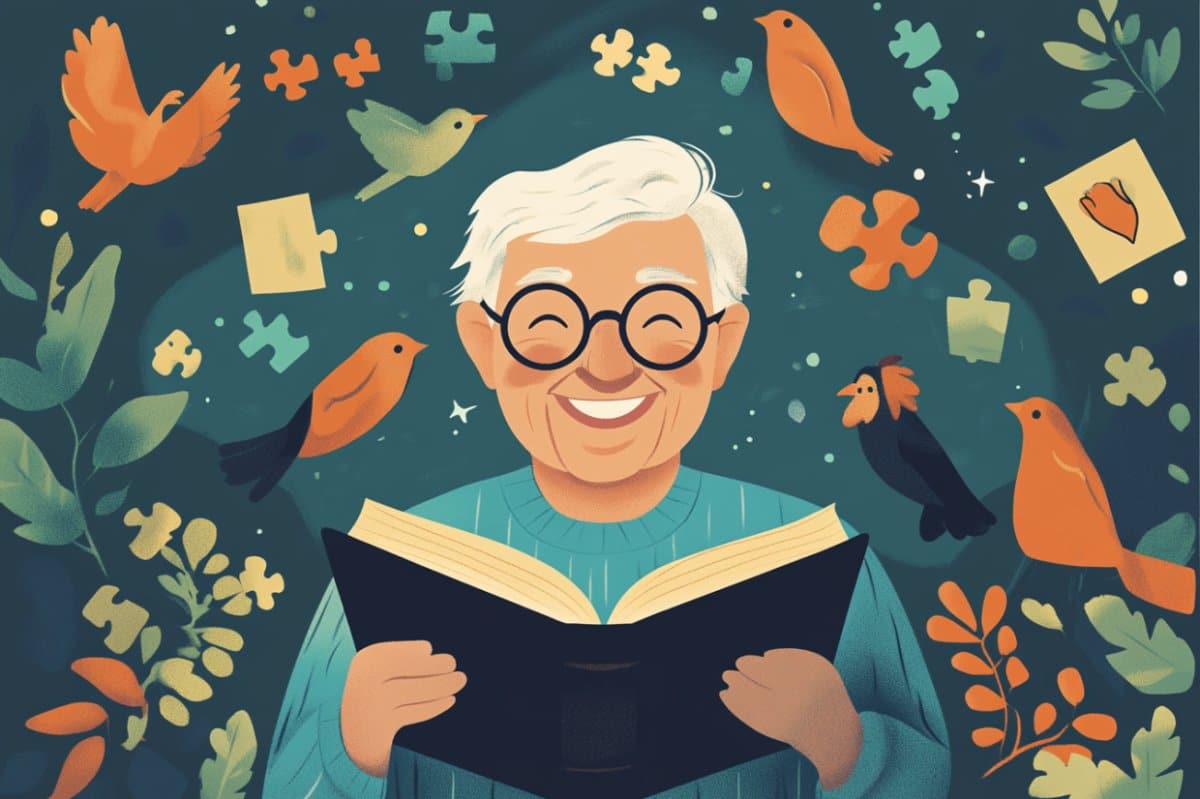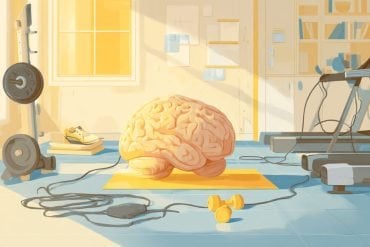Summary: New research suggests that while general curiosity tends to decline with age, specific curiosity, or “state curiosity”, actually increases later in life, potentially protecting against cognitive decline. Older adults showed heightened interest in learning new information, especially topics related to personal interests, which may help keep the brain sharp.
The study proposes that maintaining this curiosity could counteract risks associated with dementia, as disinterest often signals early cognitive decline. These findings challenge prior beliefs and highlight the value of selective learning and engagement in healthy aging.
Key Facts:
- Rising State Curiosity: State curiosity increases in later life, even as trait curiosity declines.
- Protective Potential: Heightened curiosity may help reduce the risk of Alzheimer’s and cognitive decline.
- Selective Learning: Older adults tend to focus curiosity on meaningful and personally relevant topics.
Source: UCLA
What is the trick to aging successfully?
If you’re curious about learning the answer, you might already be on the right track, according to an international team of psychologists including several from UCLA.
Their research shows that some forms of curiosity can increase well into old age and suggests that older adults who maintain curiosity and want to learn new things relevant to their interests may be able to offset or even prevent Alzheimer’s disease.

Conversely, those who show muted curiosity and disinterest may be at risk for dementia.
The finding contradicts prior research that showed that curiosity decreases with age.
“The psychology literature shows that oftentimes what’s known as trait curiosity, or a person’s general level of curiosity, tends to decline with age,” said UCLA psychologist Alan Castel, who is the senior author of a new paper published in the journal PLOS One.
“But we thought that was a little bit strange and went against some of the things we saw in some of the older adult participants in our experiments, who would often be very engaged and interested in learning about memory, specifically, but even other forms of trivia.”
Castel and Mary Whatley, who led the research as a doctoral student at UCLA and is now an assistant professor of psychology at Western Carolina University, and colleagues Kou Murayama and Michiko Sakaki at the University of Tübingen and Kochi University of Technology, wondered if the answer lay in a different type of curiosity called state curiosity.
State curiosity is what psychologists call the kind of momentary feeling of curiosity people experience when they are asked about specific topics. Trait curiosity, on the other hand, is a personality trait.
Some people, for example, might not be very inquisitive by nature, being content to accept things more or less at face value (trait curiosity), but have a passionate thirst for knowledge in specific topics or hobbies (state curiosity). All people possess varying degrees of both trait and state curiosity.
To tease apart the two types of curiosity, the researchers recruited a large sample of participants between the ages of 20 and 84, with an average age of 44, to complete an online questionnaire designed to assess how curious they were in general, or their trait curiosity.
Then, to test state curiosity, the researchers asked the participants to guess the answers to hard trivia questions that most people were unlikely to already know — e.g., What was the first country to give women the right to vote?
The researchers asked people to guess an answer, then asked participants how interested they were to know the answer before showing the correct answer (if you are curious: New Zealand).
Analysis showed that the two kinds of curiosity are correlated: People who have more state curiosity also experience more trait curiosity, and vice versa. In general, trait curiosity did decline across the adult lifespan.
However, the interest ratings people gave in learning new information from trivia — a measure of state curiosity — declined in early adulthood, then increased sharply after middle age and continued upward well into old age.
The finding, Castel said, mirrors research that shows a dip in happiness in midlife.
One reason for the discrepancy, the researchers suggest, is that until middle age, people are usually interested in acquiring the knowledge, skills and opportunities they need to succeed at school and their jobs, pay mortgages and raise families, and thus a fairly high level of overall curiosity is needed.
These obligations also come with stressors that could contribute to a decline in overall happiness. But as they age and gather this knowledge, they don’t need to allocate as many resources to trait curiosity. As their children leave home and they begin to retire, for example, people can indulge specific interests, and state curiosity increases.
“Our findings fit with some of my work on selectivity theory, which is that as we get older, we don’t want to stop learning, we’re just more selective about what we want to learn,” Castel said.
“You see this in the context of lifelong learning: A lot of older adults will go back to take classes or pick up hobbies or engage in bird watching. I think it shows that this level of curiosity, if maintained, can really keep us sharp as we age.”
Castel said that his research on memory has shown that people tend to quickly forget information that doesn’t engage their curiosity.
“As we get older, maybe we want to be focused on the things that are important, and we forget the things that are less relevant,” Castel said.
“Anecdotally, a lot of older adults I speak to say that it’s important to stay curious. That fits with some of the research that shows that people who have early stages of dementia might show disinterest in things that they once enjoyed.”
Funding: This work was supported in part by the National Institutes of Health’s National Institute on Aging, the Leverhulme Trust and the Alexander von Humboldt Foundation.
About this aging and cognition research news
Author: Holly Ober
Source: UCLA
Contact: Holly Ober – UCLA
Image: The image is credited to Neuroscience News
Original Research: Open access.
“Curiosity across the adult lifespan: Age-related differences in state and trait curiosity” by Alan Castel et al. PLOS One
Abstract
Curiosity across the adult lifespan: Age-related differences in state and trait curiosity
Maintaining curiosity in older age may be a key predictor of successful aging, but prior research on the relationship between curiosity and age is mixed, with mounting evidence showing that curiosity declines with age.
However, there is evidence suggesting that state curiosity – a situational feeling of curiosity in response to information – may increase with age.
Prior work has largely not adequately differentiated state and trait curiosity when examining its relationship with age. In a large lifespan sample (pilot study N = 193; preregistered main study N = 1,218), we assess trait curiosity and state curiosity (using a trivia rating task) to examine the relationship between each construct and age.
The results show that, in line with prior work, trait curiosity shows a negative relationship with age, but state curiosity shows a positive relationship with age, while controlling for demographic variables.
The results suggest that curiosity may have a more complex relationship with age than previously considered, which can have implications for engagement in cognitive activities in everyday life.







